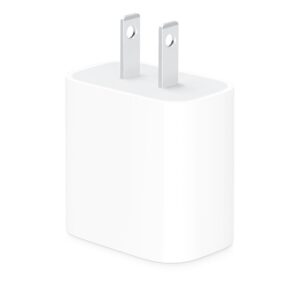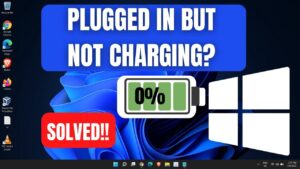Are you searching for an electrician for ev charger installation? Finding the right professional ensures a safe and efficient setup for your electric vehicle. With the rise in EV popularity, having a reliable charging station at home becomes essential.
Choosing a qualified electrician guarantees that your installation meets local codes and standards while optimizing charging performance. It’s not just about convenience; it’s also about safety. Investing in expert installation means peace of mind as you power up your electric vehicle at home.
Electrician for EV Charger
As electric vehicles (EVs) become more popular, many homeowners want to install an electric vehicle charger in their garages or outside their homes. This leads to the need for skilled electricians who specialize in these installations. Understanding the importance of hiring a qualified electrician for an EV charger is crucial for ensuring safety, efficiency, and compliance with local regulations. In this article, we will explore everything you need to know about hiring an electrician for your EV charger.
Why You Need an Electrician for Your EV Charger
Installing an EV charger is not a simple plug-and-play operation. It involves understanding your home’s electrical system and how to safely connect the charger. Here are several reasons why you need a qualified electrician:
- Safety: Working with electricity can be dangerous. A licensed electrician understands local codes and safety regulations to prevent accidents.
- Expertise: Electricians have the training and experience to assess your home’s electrical capacity and recommend the best charger options.
- Permits and Regulations: Many areas require permits for EV charger installations. Electricians can handle the paperwork and ensure compliance with local laws.
- Warranty Protection: Hiring a professional helps maintain the warranty of your EV charger. Incorrect installation may void the warranty.
Types of EV Chargers
Before hiring an electrician, it’s good to know the types of EV chargers available. There are three main types, each with varying installation requirements:
Level 1 Chargers
Level 1 chargers use a standard 120-volt outlet and are the simplest and least expensive option. They are usually found in homes. However, charging times can be quite long, making them less efficient for regular use.
Level 2 Chargers
Level 2 chargers use a 240-volt outlet, similar to what is used for large appliances like dryers. These chargers significantly reduce charging time compared to Level 1. Installing a Level 2 charger typically requires an electrician to upgrade your electrical panel or install a dedicated circuit.
DC Fast Chargers
DC fast chargers deliver a high voltage and can charge an EV in as little as 30 minutes. They are primarily used in commercial settings and require advanced electrical installations. Homeowners rarely install these due to their high cost and complex installation requirements.
Choosing the Right Electrician for Your EV Charger Installation
Finding the right electrician for your EV charger installation is essential. Here are tips on how to choose a qualified professional:
Check Credentials
Make sure the electrician has the proper licensing and insurance. You can verify their credentials by checking with your local licensing board.
Experience with EV Chargers
Look for electricians who have specific experience installing EV chargers. Ask about their past projects and whether they have worked with the type of charger you plan to install.
Read Reviews and Testimonials
Check online reviews and ask for references from past clients. Positive feedback can give you confidence in their abilities.
Request Detailed Quotes
Obtain written estimates from multiple electricians. The quotes should detail the scope of work, materials, labor costs, and any permitting fees.
Ask About Warranty and Maintenance
Inquire about warranties on workmanship and the charger itself. A reliable electrician should stand behind their work and offer maintenance services.
Installation Process of an EV Charger
When the right electrician is selected, the installation process can begin. Here’s what you can typically expect:
Initial Consultation
The electrician will visit your home for an initial assessment. They will evaluate your electrical system, determine the best charger type, and discuss placement options.
Permitting
After agreeing on the installation plan, the electrician will help you obtain any necessary permits required by your local jurisdiction.
Electrical Panel Upgrade (if needed)
If your home’s electrical panel cannot support a Level 2 charger, the electrician will upgrade it. This ensures that your home can handle the added load without compromising safety.
Charger Installation
Once everything is in place, the electrician will install the charger. This may involve wiring, connecting to the electrical panel, and ensuring everything is securely mounted.
Testing and Instruction
After installation, the electrician will test the charger to confirm it’s working correctly. They will also provide instructions on how to use it, including safety tips and maintenance advice.
Cost of Hiring an Electrician for EV Charger Installation
The cost of hiring an electrician for EV charger installation can vary significantly based on several factors:
Type of Charger
The type of charger impacts the overall cost. Level 2 chargers are generally more expensive to install than Level 1 due to their more complex requirements.
Electrical Upgrades
If your electrical panel needs an upgrade, this will increase the overall cost. Upgrading the panel can range from a few hundred to several thousand dollars, depending on the extent of the work needed.
Labor Costs
Electricians typically charge hourly rates, which can vary based on location and experience. Expect labor costs to range from $50 to $100 per hour.
Permitting Fees
In some areas, permits may add additional costs to the project. Be sure to include these fees in your budget.
Maintenance of EV Chargers
Regular maintenance of your EV charger is vital for its longevity and efficiency. Here are some maintenance tips:
- Regular Inspections: Have an electrician inspect the charger and wiring at least once a year.
- Clean the Unit: Wipe down the charger and keep the area around it free of debris.
- Check for Software Updates: Some chargers have software that needs updating to operate efficiently.
- Monitor Performance: Keep track of charging times and any unusual behavior from the charger, which could indicate an underlying issue.
Common Issues with EV Chargers and Troubleshooting
Even with proper installation and maintenance, problems can arise with EV chargers. Here are some common issues and how they can be addressed:
Charger Not Working
If the charger doesn’t power on:
– Check if it’s plugged in correctly.
– Inspect the circuit breaker to see if it tripped.
– Contact your electrician if the problem persists.
Charging Takes Too Long
If your EV takes longer than usual to charge:
– Ensure the charger is compatible with your vehicle.
– Check if the charger settings are correct.
– Consider asking your electrician if your electrical system can handle the load.
Overheating Issues
If the charger gets excessively hot during charging:
– Stop using the charger immediately.
– Check for dirt or debris blocking the vents.
– Consult your electrician for a thorough inspection.
Future of EV Charging
As electric vehicles continue to gain traction, so will the technology behind EV chargers. Future developments may include:
Smart Chargers
Smart chargers will allow users to monitor charging via apps, schedule charging times during off-peak hours, and integrate with renewable energy sources.
Faster Charging Solutions
With advancements in battery technology, we may see chargers that provide even quicker charging times, making EV ownership more convenient.
Wider Accessibility
As more people switch to electric vehicles, we can expect more public charging stations and easier access to home charging options.
Hiring an electrician for your EV charger installation is essential for safety and compliance with regulations. Understanding the types of chargers available, the installation process, and maintenance needs will help you make informed decisions. With the right electrician, you can enjoy the benefits of owning an electric vehicle with the peace of mind that comes from knowing your charger is installed correctly and safely.
Electrical Vehicle Chargers Explained | Ask This Old House
Frequently Asked Questions
What qualifications should I look for in an electrician for EV charger installation?
When selecting an electrician for EV charger installation, ensure they have relevant qualifications such as a valid electrical license, experience with EV charging systems, and knowledge of local electrical codes. Check for certifications specific to EV charger installations, as these can indicate a higher level of expertise. Additionally, consider their familiarity with different types of EV chargers and their installation requirements.
How long does it typically take to install an EV charger?
The installation time for an EV charger usually ranges from a few hours to a full day. This duration depends on various factors, including the complexity of the installation, the type of EV charger, and the existing electrical infrastructure at your location. If the installation requires significant electrical upgrades, it might take longer. Always consult with your electrician for a more accurate estimate based on your specific situation.
Can I install an EV charger myself, or should I hire a professional?
While some individuals may possess the skills and knowledge to install an EV charger on their own, hiring a professional electrician is highly recommended. A qualified electrician ensures the installation complies with local codes and safety standards, reducing the risk of electrical hazards. Moreover, a professional can provide guidance on the best charger type for your home and help navigate any permits or inspections required.
What factors influence the cost of installing an EV charger?
Do I need a specific type of electrical service to support an EV charger?
Yes, most EV chargers require a specific level of electrical service to function effectively. Level 2 chargers typically need a dedicated 240-volt circuit, whereas Level 1 chargers can often work with a standard 120-volt outlet. Before installation, have your electrician assess your current electrical service to determine if it meets the requirements for the charger you choose. They can also recommend any necessary upgrades to ensure safe and efficient operation.
What maintenance is required for EV chargers?
EV chargers generally require minimal maintenance, but regular checks can help ensure they function optimally. Keep the charger clean and free of debris, inspect the cables for wear or damage, and ensure that the connections remain secure. If you notice any issues, such as unusual noises or error messages, consult your electrician promptly to address potential problems before they escalate.
Final Thoughts
Investing in an electric vehicle charger at home enhances convenience and efficiency. Hiring a qualified electrician for EV charger installation ensures safety and compliance with local regulations. They can assess your electrical system, recommend suitable chargers, and install them correctly.
Choosing the right electrician for EV charger installation makes the process smooth and reliable. With their expertise, you can enjoy the full benefits of your electric vehicle without any hassle. Prioritize professional assistance to power your EV charging needs effectively.


